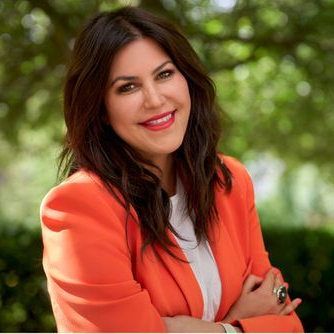With widespread lockdowns still in place, the economy is getting hit hard around the world.
We know that money can be a huge point of worry on a good day for many people. But with the rising uncertainty around jobs and money, more and more people are finding themselves anxious about the future of their finances.
If you’re finding yourself anxious or worried right now, know that you’re not alone. According to the Money and Pensions Service, an estimated 11.5 million people in the UK have less than £100 in cash savings. That is a huge number of people in the same situation, scrambling to arrange their budgets to prepare for what the future might hold. However, those hit the hardest financially are those who are self-employed or can’t work due to illness, industries that are reducing hours and laying off staff, and those who are close to retirement. Individuals in these areas will continue to feel the pinch as we continue to social distance, and may face even more challenges as the weeks/months progress.
”In the UK one in five—21%—of people have been furloughed.”
Research company Ipsos Mori have been polling people around the world since early March, allowing us a longitudinal look at our changing financial behaviours throughout quarantine. They found that in the UK one in five (21%) of people have been furloughed, and 17% have had their take-home pay reduced. In an effort to keep costs low and save for the future, almost two-thirds of Britons have been spending less money overall, and 46% have already accessed their savings. Leaving many of those who have had pay reductions or have been furloughed finding themselves increasingly more worried that their jobs will not be there after all this is over.
Research shows that money can often be a real trigger for people, with financial struggles especially having a huge impact on mental health. When someone is struggling with poor mental health it can make it even harder to manage money, causing worry and having a knock-on effect on their mental health. It’s a vicious cycle that can be incredibly difficult to get out of. However, understanding your patterns around money can be incredibly beneficial in helping you manage your finances, and any anxieties around it better.

The Money and Mental Health Policy Institute found in 2019 that people with money problems have slower recovery rates for common mental health conditions. Those suffering from depression and financial problems are 4.2 times more likely to still have depression 18 months later, compared with those without financial issues. On top of that, people with financial challenges were 3 times more likely to think about suicide over the past year. Even during regular economic times, more than 100,000 people in England attempt suicide while financially struggling.
Many employees who have not been directly impacted by furloughs or pay cuts are also questioning whether their income is safe and if the company is going to survive. So it is up to our managers to take these worries seriously, carving out time to discuss financial wellbeing with their teams. Managers and leaders should initiate honest conversations with their employees, giving them the time and space to bring up any concerns or challenges they may be facing.

These conversations allow for an open conversation, where management can answer any questions that are coming up and provide clear accurate information. However, it is important to be clear beforehand on what is and isn’t open to share. This is also an opportunity to direct team members to further information or resources they can use if they are worried about financial protection, budgeting options, or just want some peace of mind and security during an incredibly uncertain time.
Lorraine McFall, our PUSH money expert shared some insights with us around money mindsets and financial worry.
”Culturally as a nation we have not been good at talking about money.”
“Culturally as a nation we have not been good at talking about money. Hopefully, one of the positives to come out of this dreadful situation is that so many of us have had the financial rug pulled from under our feet, by something which is completely outside our control, we won’t have the same feelings of shame or fear of judgement about reaching out for help or talking about our money worries. That has got to be a good thing for employers and employees as before COVID-19, 77% of employees admitted that money worries have affected their performance at work leading to sickness, absence and poor performance.
Despite so many people worrying about money or, at the very least, being aware that they need to do something, very few actually take action. As long as the bills are being paid and the bailiffs are not at the door, it’s often easier to leave things as they are and accept the disempowering notion that money is something that happens to us, rather than be the driver of our financial choices. “

In the PUSH Money Matters workshops, Lorraine encourages participants to work not only on their day to day management skills but also on setting their financial goals and becoming aware of their money mindset. If people can consistently take action in all 3 of these areas then they will achieve financial wellbeing which essentially means “Giving people a greater sense of confidence and control over their money through good times and bad.”
She also shared three immediate steps you can do today to start you on that process of taking ownership of your financial future are:
- Open up a new bank account and keep all direct debits and regular payments coming from one account and transfer your spending money into a separate account. Use the new bank account for all your day to day spending and you will have visibility over how much money you actually have that is available for spending. Consequently you will be able to avoid that constant mental calculation of “is there enough”, every time you hand your card over and avoid those feelings of scarcity. Yes, there might not be as much as you would like in your account each month but the fear can often be worse than the reality and actually knowing your numbers and taking away the fear will give you the confidence to take the next step on your financial journey.
- Write down 2 or 3 immediate short term financial goals and a very specific plan about all the steps you need to take to achieve the goals. This will be the first step of your financial plan. The very act of implementing this will help you see the benefit of setting specific goals and give you the confidence to think bigger and for the longer term.
- Watch the language that you use about money. If every time you think about your finances, you constantly think “I’m rubbish with money”, you are setting yourself up for failure. The first time things get tough, you already have your get out of jail card ready, “Well I knew that happened, ’cause I’m rubbish with money…..”. The first step to working on your money mindset is becoming aware of the language you use and stop using it. If it’s hard to break the habit then put the expression in the past tense, “ I USED to be rubbish with money, I am now learning to take control.”
During this time, it is incredibly important to pay attention to the financial wellbeing of our friends, family and colleagues. We know things are going to be tough for a while, and money can be such a personal subject for many people. But in a time when your typical reaction would be to pull back, we need to be brave. We need to be open to having these conversations, and provide a non-judgemental and safe space to share how we’re feeling.
Helpful Resources
- The Samaritans: Support & Info during Coronavirus
- Public Health England: Guidance for the Public on Mental Health and Wellbeing
Up to date Info on Corona

more articles by Cate Murden


